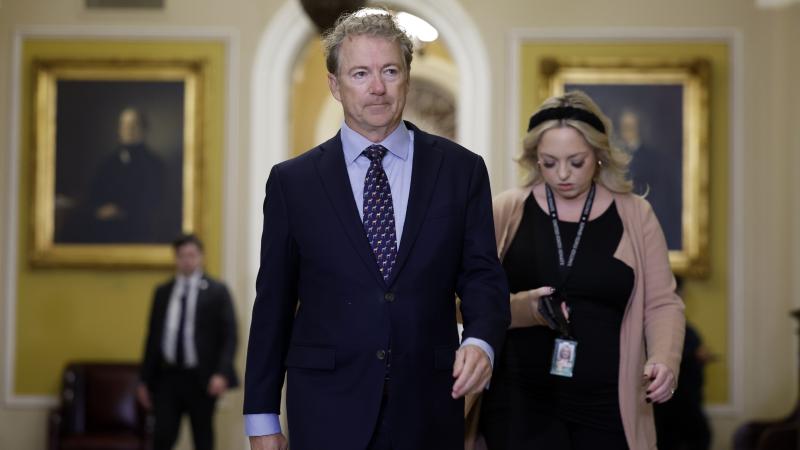Judge blocks Biden rule that allegedly muzzles doctors from reporting suspected child abuse
Reinterpretation of health privacy law on abortion, transgender treatments after Supreme Court ended federal abortion protection "likely" violates law, Trump nominee says, approving preliminary injunction.
A federal judge nominated by President Donald Trump blocked the Biden administration's reinterpretation of the Health Insurance Portability and Accountability Act in a lawsuit by a Texas doctor who claims the regulation muzzles her from reporting suspected child abuse and constitutes an end-run around Texas abortion restrictions.
"Here it is not the state's medical judgments that are contrary to law but ... likely the 2024 Rule" by the Department of Health and Human Services in response to the Supreme Court's Dobbs decision returning abortion regulation to the states, U.S. District Judge Matthew Kacsmaryk wrote in approving a preliminary injunction Sunday, the day before compliance became mandatory.
The HIPAA rulemaking changed the law's definitions of "person" to exclude human beings before birth, "reproductive health care" to "broadly" apply to the reproductive system, and "public health" to exclude use and disclosure of personal health information for investigations or proceedings related to reproductive healthcare.
Carmen Purl and her Dr. Purl's Fast Care Walk In Clinic sued this fall for alleged Administration Procedure Act violations, claiming the regulation "arguably" requires her to violate Texas by not reporting suspected child abuse related to coerced abortion, sexually transmitted diseases and medicalized gender transitions.
Kacsmaryk blasted HHS for claiming Purl could comply with the regulation "more cheaply" than she claimed in a sworn affidavit because she can "process 2024 Rule requests all by 'herself,'" writing she's not required to "explain in excruciating detail exactly how ... compliance costs will materialize."
HHS itself "contemplated" compliance costs that were more than minimal to comply, the judge said.
Purl and her clinic "aver they must do some level of training. HHS agrees. Plaintiffs argue they must implement new or revised procedures. HHS agrees," Kacsmaryk wrote. "Nobody contests that these costs would be unrecoverable should Plaintiffs prevail: Defendants have sovereign immunity."
He sided with Purl's claim that "forcing a doctor to toe a tightrope where the doctor must make complex factual, prudential, and legal judgments is exactly what HIPAA barred with respect to child abuse reporting."
Even if the regulation does not "seek" to "outright bar reporting of child abuse in select scenarios," it's like a speed limit that "mandates a driver slow down but does not outright prohibit driving" by slowing child-abuse reporting in violation of HIPAA's own limits, "even if after the doctor treads the 2024 Rule's technicalities, disclosure would be permitted," Kacsmaryk wrote.
He noted HHS agrees that doctors "are not prepared or equipped to make nuanced legal judgments" that would require them to risk a HIPAA violation or alternately state penalties for not reporting: "This legal analysis is difficult for lawyers, much less doctors."
The judge pointed to the trouble courts have had, "never mind medical professionals," evaluating HHS's argument that the Emergency Medical Treatment and Active Labor Act "mandates abortion care under federal law in emergency scenarios."
He rejected HHS's argument that it would be harmed by a preliminary injunction. HIPAA's privacy rule "already protects reproductive healthcare information the same as all other sensitive medical information" and HHS "may not invoke an interest in engaging in a likely statutory violation," overriding state abortion restrictions.
"This ruling falls in line with the U.S. Supreme Court’s decision in Dobbs that affirms that states—not unelected bureaucrats – should set abortion policy and be free to protect unborn life," Alliance Defending Freedom Senior Counsel Julie Marie Blake, representing Purl, wrote in a statement.















